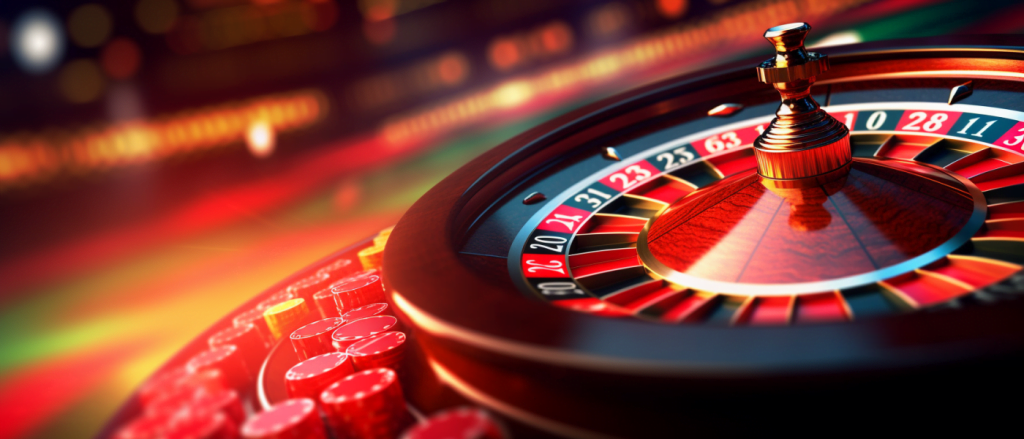
Roulette Etiquette and Culture: Navigating the Unspoken Rules of the Wheel
The allure of the roulette table is undeniable. As I step into the casino’s vibrant ambiance, the roulette wheel’s rhythmic spins and the accompanying chatter of players always draw me in. But this game is more than just placing bets and awaiting the ball’s final resting place. It’s a dance of tradition, etiquette, and respect. A world where unspoken rules govern interactions and where understanding these nuances enhances the experience manifold.
Roulette, with its rich history, has evolved its own set of customs that seasoned players adhere to. These unwritten guidelines ensure the game remains enjoyable for everyone, from the novice trying their luck for the first time to the veteran who’s seen the ball land in every pocket. Let’s journey together through the intricacies of roulette etiquette and the vibrant culture that surrounds this iconic game.
The Role of the Croupier

Duties and Responsibilities
At the heart of every roulette game is the croupier, a figure of authority and expertise. Tasked with managing the game’s flow, the croupier ensures that bets are placed correctly, payouts are accurate, and the game’s pace is maintained. Their role is pivotal, acting as the bridge between the players and the casino. Their meticulous nature and sharp eyes catch even the slightest discrepancies, ensuring fairness prevails.
Beyond the technical aspects, croupiers also play a significant role in creating the table’s atmosphere. Their interactions, announcements, and even their demeanor set the tone. A skilled croupier manages the table with a blend of professionalism and approachability, making players feel both at ease and engrossed in the game.
Interacting with the Croupier
Building a rapport with the croupier can enhance your roulette experience. While they remain neutral, acknowledging their role and expertise with a nod or a polite word can set a positive tone. However, there are moments to engage and moments to observe. For instance, when the croupier announces “no more bets,” it’s a clear signal to refrain from any further actions.
Conversely, there are moments of celebration at the roulette table, like a win against the odds. While it’s tempting to let emotions run high, it’s essential to remember that the croupier is not your adversary. They’re simply the game’s facilitators. A gracious winner is always appreciated, just as a gracious loser is. In my time around roulette tables, I’ve found that a simple acknowledgment or a word of thanks can make interactions with the croupier more pleasant and memorable.
Placing Bets: The Unwritten Rules
Timing is Everything
In the world of roulette, timing isn’t just about luck; it’s about etiquette. There’s a rhythm to the game, a flow that seasoned players recognize and respect. As the wheel spins, there’s a window of opportunity to place your bets. However, once the croupier announces “no more bets,” it’s a clear signal to step back and await the outcome. I’ve often observed newcomers eager to place their chips, only to realize they’ve missed the window. It’s a learning curve, and understanding this timing is crucial not just for the game’s flow but also for maintaining the table’s harmony.
Another aspect of timing is the pace at which you place your bets. While it’s essential to be decisive, it’s equally important to be considerate. Hogging the table or taking an excessive amount of time can disrupt the game for others. Over time, I’ve learned that a balance between swift decision-making and thoughtful consideration makes for the best roulette experience.

Handling Chips
Chips are the currency of the roulette table, and handling them correctly is a sign of a seasoned player. When buying in, always wait for a break in the action and place your money on the table. The croupier will exchange it for chips. It’s essential never to hand money directly to the croupier, as casino rules often prohibit this.
When placing your bets, stack your chips neatly within the designated areas. Not only does this make it easier for the croupier to see and validate your bets, but it also keeps the table organized. And when it’s time to leave, ensure you cash in your roulette chips at the table itself, as they might not be valid elsewhere in the casino. Over the years, I’ve seen many players, both new and experienced, overlook this, only to rush back to the table to exchange their chips.
Player Interactions: Respect and Camaraderie
Celebrating Wins and Handling Losses
The roulette table is a rollercoaster of emotions. The anticipation as the ball spins, the thrill of a win, and the disappointment of a loss. While it’s natural to feel a rush of emotions, it’s essential to express them with decorum. Celebrating a win is part of the joy, but it’s always done best with humility. Overly exuberant celebrations can come off as gloating, especially to those who might not have had the same luck.
Conversely, losses are an inevitable part of the game. Handling them with grace, without blaming the croupier or other players, is a sign of maturity and respect for the game. I’ve always believed that it’s not the wins or losses that define a player, but how they handle them.
Conversations at the Table
The roulette table isn’t just a place for bets; it’s also a hub for conversations, banter, and camaraderie. Engaging in light-hearted conversations with fellow players can enhance the experience. However, it’s crucial to strike a balance. While friendly chats are encouraged, it’s essential to avoid heated discussions or debates, especially about the game. The table should remain a neutral ground, free from disputes or disagreements. Over the years, I’ve forged many friendships at the roulette table, all built on mutual respect and a shared love for the game.
Cultural Variations in Roulette Etiquette
European vs. American Tables
The divide between European and American roulette isn’t just about the extra double zero on the American wheel; it extends to the table’s etiquette and culture. In European casinos, particularly in places like Monte Carlo, there’s a distinct air of formality. Players often dress more formally, and the atmosphere is one of elegance and tradition. The croupiers, too, are often more formal in their interactions, reflecting the game’s storied history in European casinos.
American casinos, on the other hand, tend to have a more relaxed vibe. While the game’s core etiquette remains, there’s often more room for casual attire, lively interactions, and a generally more laid-back atmosphere. This isn’t to say that American tables lack the sophistication of their European counterparts; it’s just a different kind of energy. Having played on both continents, I’ve come to appreciate these nuances and adapt my demeanor accordingly.
Regional Superstitions and Beliefs
Every culture has its superstitions, and roulette is no exception. In some Asian casinos, it’s not uncommon to see players wearing red, a color believed to bring luck. Some players might have rituals they perform before placing a bet, like blowing on the dice in craps, tapping the table, or even talking to the ball!
In European circles, many players swear by certain “lucky numbers” and might consistently bet on them, regardless of the odds. These numbers often have personal or cultural significance. Meanwhile, in American casinos, the number 7 is often considered lucky, while 13 is viewed with suspicion.
One of the most fascinating aspects of playing roulette worldwide is observing these unique beliefs and rituals. They add a layer of depth to the game, reminding us that roulette isn’t just about odds and strategies; it’s deeply intertwined with culture, history, and human psychology.
How does Understanding the Mathematics of Roulette Impact Roulette Etiquette and Culture?
Understanding the mathematics behind roulette can greatly influence roulette etiquette and culture. Players who grasp the probabilities of each bet are more likely to make informed decisions, leading to a more balanced gaming atmosphere. This knowledge also fosters a deeper appreciation for the game, influencing casino culture.
The Global Dance Around the Roulette Wheel
Roulette, with its spinning wheel and cascading chips, is a universal language. Yet, every region adds its unique flair, traditions, and nuances. As I’ve journeyed through casinos worldwide, I’ve come to appreciate this rich tapestry of customs that define the roulette experience. From the formal elegance of European tables to the lively energy of American casinos and the deeply ingrained superstitions of players from all corners of the globe, roulette is a testament to humanity’s love for games of chance.
Whether you’re a seasoned player or a newcomer, understanding and respecting these cultural nuances can greatly enhance your roulette experience. After all, it’s not just about winning; it’s about the stories, the interactions, and the memories we create around the wheel.



